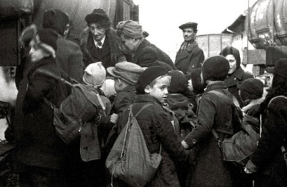
June is traditionally international pride month, a time to celebrate LGBTQ+ lives and promote the ongoing fight for greater freedoms and understanding. For history lovers, it is a chance to explore often overlooked and sometimes underappreciated historical perspectives from this community. However, currently, trans persons have been the focus of a slew of negative press and attention. In this climate of rising anti-trans sentiment, it is important to listen to the stories of trans persons and look at historical examples of trans lives. We spoke to four academics about the importance of studying trans history, how the concept of gender has shifted, and their hopes for the future.

How has the idea of gender identity changed through history?
Kit Heyam: The term 'gender identity’ and indeed, the use of the word 'gender' to specifically talk about male, female and related categories - only dates back to mid-20th century
Western sexology. Prior to that in Western culture, what we now call gender was inextricably entangled with other aspects of our experience like our sexuality, our dress, and our social role - and that's still the case in many cultures today. This means there's so many fascinating histories of gender nonconformity which are too messy to fit into modern/Western trans categories - but which still show us that gender has never been fixed, uncontested, or tied to the body.
In early modern Europe, new ideologies emerged that imagined the body as a fixed and unchangeable biological entity, used to anchor people in similarly fixed and unchangeable social categories. These new ideologies had everything tomodern period, both Europeans and people in other cultures were more open to the idea that bodies changed over time in response to changing environmental influences (including what we now think of as 'sex'). Bodies were not imaged as biological anchors permanently binding individuals to unchangeable categories.






